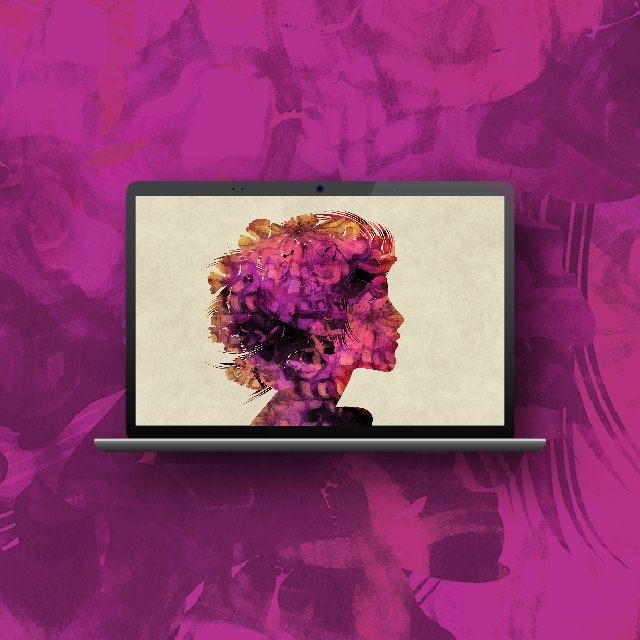Monique Acosta House was just 22 when she was diagnosed with congestive heart failure, and 44 when she had a heart transplant. Karin Bertozzi was 46 when she underwent emergency open heart surgery at Suburban Hospital for an aortic aneurysm and dissection.
Both women recently spoke about their experiences with heart disease as part of the annual Women’s Health Symposium, hosted by Suburban Hospital and funded by the J.B. and Maurice C. Shapiro Endowment for Women’s Health.
The symposium, now in its 19th year, promotes and raises awareness of female heart health. This year’s event was virtual for the first time because of COVID-19. It focused on the pandemic and the challenges of staying healthy during difficult times.
“Whether you’re in your 30s and single, married with kids, retired and living with your spouse or widowed, everybody is dealing with the stresses of the pandemic,” said event organizer Eleni Antzoulatos, supervisor of community health and wellness operations in the community health and wellness department at Suburban Hospital. “That’s why we decided to focus this year’s symposium on the prevalence of stress in women’s lives.”
House, who lives in Virginia, is a project manager and an advocate for heart health, maternal health and diversity in clinical trials. Bertozzi is a volunteer with the Mended Hearts peer support group and teaches the “Yoga from the Heart” program for Suburban Hospital.
Bertozzi moderated the Feb. 17 symposium, called “When Stress Is a Signal.” Cardiologist Carolyn Wu, M.D., M.S., of Johns Hopkins Community Physicians Heart Care in Bethesda and Chevy Chase, and Jeanmarie Gallagher, manager of the cardiac rehabilitation department at Suburban Hospital, shared insights and answered questions during the hourlong Zoom event.
Bertozzi noted that the pandemic has brought new stresses for women, including social isolation, fear of illness, bereavement, additional caregiving responsibilities and financial insecurities. Many women are juggling their own jobs while supervising children who are home instead of in school or day care.
As a result, heart-healthy habits like eating well, exercising and getting enough sleep can fall by the wayside, while smoking and alcohol consumption may increase.
“We really need to take care of ourselves before we take care of others,” said Wu. “Be aware of your needs, and acknowledge when you need help.”
Heart disease is the number one cause of death for women in the United States, yet there’s still a common misperception that it’s more common in males. Heart problems can present differently in women, and many women will not experience a chest-crushing episode if they’re having a heart attack.
“Don’t ignore other warning signs, such as nausea, abdominal pain, difficulty breathing or other symptoms that are unusual for you,” said Wu. “Make sure to consult your doctor.”
Some heart conditions are more common or specific in women, such as coronary artery dissection, cardiomyopathy during pregnancy, heart attacks that occur without obstructed large coronary arteries, and heart conditions that are related to autoimmune diseases.
Gallagher noted that many women have avoided emergency and routine medical care during the pandemic, fearful that going to a doctor’s office or hospital will increase the risk of coronavirus infection. To the contrary, medical facilities are among the “safest places,” she said.
“If you are sick, come to the hospital. And go ahead and schedule your regular doctor appointments.”
Gallagher also urged women to make small changes to improve their health. “Look at the number of steps you’re taking each day, and increase that number by 5 to 10%,” she said. “Incorporate little bursts of activity throughout your day.”
House agreed that setting achievable goals has helped her stay on track during the pandemic. “Find something that you love doing, and move,” she said. In recent months, she has taken up hula-hooping. “I can hula-hoop for two songs, and that’s 10 minutes of exercise mid-day.”
She also forces herself to occasionally ignore the laundry pile and skip other chores. “It is uncharacteristic for me, and still feels kind of weird,” she says. “Having a do-nothing day is part of my self-care.”

